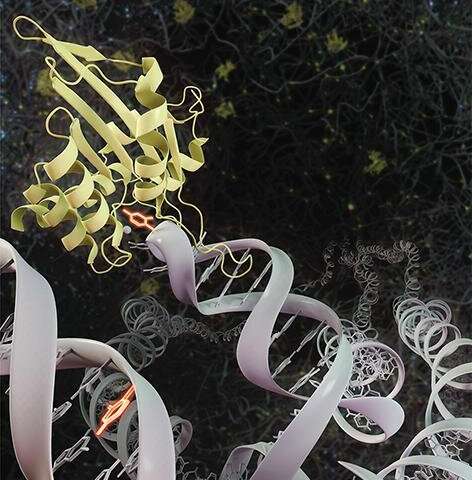
A new University of California, Irvine-led study reveals a protein responsible for genetic changes resulting in a variety of cancers, may also be the key to more effective, targeted cancer therapy.
The study, published today in Nature Communications, titled, “Quantification of ongoing APOBEC3A activity in tumor cells by monitoring RNA editing at hotspots,” reveals how the genomic instability induced by the protein APOBEC3A offers a previously unknown vulnerability in cancer cells.
Each day, in human cells, tens of thousands of DNA damage events occur. In cancer cells, the expression of the protein APOBEC3A is one of the most common sources of DNA damage and mutations. While the mutations caused by these particular proteins in cancer cells contribute to tumor evolution, they also cause breaks in the DNA, which offer a vulnerability.
“Targeting cancer cells with high levels of APOBEC3A protein activities and disrupting, at the same time, the DNA damage response necessary to repair damages caused by APOBEC3A, could be key to more effective cancer therapies,” said Remi Buisson, Ph.D., senior investigator and an assistant professor in the Department of Biological Chemistry at the UCI School of Medicine. “However, to exploit the vulnerability of the cancer cells, it is critical to first quantitatively measure the protein’s activity in tumors.”
To understand the role of APOBEC3A in tumor evolution and to target the APOBEC3A -induced vulnerabilities, the researchers developed an assay to measure the RNA-editing activity of APOBEC3A in cancer cells. Because APOBEC3A is difficult to quantify in tumors, developing a highly sensitive assay for measuring activity was critical. Using hotspot RNA mutations, identified from APOBEC3A-positive tumors, the team developed an assay using droplet digital PCR and demonstrated its applicability to clinical samples from cancer patients.
Source: Read Full Article